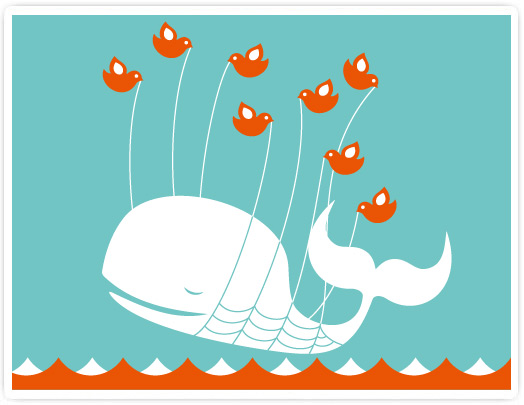Your cart is currently empty!

The Anti-Twitter Backlash
What anti-Twitter backlash? It’s hard for those of us who are already hooked up to keep in mind that there are people still who feel nervous and uncertain about social media. Or, as with Twitter, outraged and dismissive.
The owner of Homefront Air and Medical Supply was telling me this morning that a Rotary Club speaker had suggested that Twitter was on its way out. Facebook would last, this online marketing expert had assured them, but Twitter was being overrun by ads and would soon wither away.
I set up a Facebook page for her business, of course, but I also encouraged her to go with Twitter. I don’t think Twitter is on its last legs (they had 96 million unique visitors in August, for example), but I pointed out that my client could have a Twitter account with a very small investment. I’m not going to argue with the Rotary Club.
The continuing concern over Twitter’s reach and value is connected with the other big concern about the microblogging service: 140 characters isn’t enough to say important things, so there’s a whole lot of shallow stuff there.
It’s true that there’s a lot of shallow stuff at Twitter. However, that’s not just about word limits. I speak as one whose job it is to boil down companies’ press releases to things like ““This sw is extremely fast – 1/Gb/min over our LAN and 90Mbps over our WAN!!! Impressive,” –Campbell Green, Managed Secure Offsite Backups” or “Our site has a great new look!… Go over and admire it and we’ll bask in the glow. That’s the plan.”
Jimmy Tidey wrote in .net magazine, “From all the hostility to Twitter, you’d think that people usually speak in brilliant, lengthy soliloquies rather than the dull platitudes that make up the majority of everyday conversation.” Indeed, boring people are boring on Twitter. People who are continually trying to sell you things can try to sell you things on Twitter, too. And people whose thoughts are usually centered on lunch will mostly talk about lunch. That’s not Twitter’s fault.
It’s not the fault of the medium, either.
Your company should have a Twitter account, because people will be looking for you there. Many people talk about consumer problems at Twitter specifically because they figure that’s the best place to get noticed by the company and get some help. You should be part of the conversation.
If you feel that the overall level of discourse at Twitter is too low, then you can raise it by the quality of your Tweets. If you fear that Twitter will be overtaken by ads, do your part to keep that from happening by making your own Tweets useful and interesting.
User generated content will always be just as good as the users who generate it.
by
Tags:

Leave a Reply